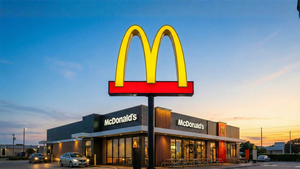
Detroit, MI – October 7, 2025 – Ford Motor Company (NYSE: F) saw its stock take a significant hit today, with shares plummeting by as much as 7%, as concerns mounted over the lingering impact of a fire that occurred three weeks ago at a critical aluminum supplier's plant. The incident, which transpired on September 16, 2025, at Novelis’ (NYSE: NVL) Oswego, New York, facility, has sent ripples of anxiety through the market, exposing vulnerabilities in Ford’s supply chain for its highly profitable F-Series pickup trucks.
The sharp decline in Ford's stock performance underscores growing investor apprehension about potential production disruptions and the financial fallout from the extended outage at the Novelis plant. With operations at the damaged hot mill not expected to resume until the first quarter of 2026, the market is bracing for a substantial impact on Ford’s ability to produce its aluminum-intensive vehicles, particularly the immensely popular F-150, which relies heavily on the Oswego plant's output. The delayed realization of the fire's full implications has caught many off guard, transforming a past event into a present market crisis.
Supply Chain Ablaze: Unpacking the Novelis Plant Fire and Its Aftermath
The catalyst for Ford’s recent market woes was a significant fire that erupted on September 16, 2025, at Novelis’ sprawling aluminum production facility in Oswego, New York. The blaze, while initially contained, caused extensive damage to the plant's crucial hot mill, a cornerstone of its operations responsible for producing specialized aluminum sheets vital for automotive manufacturing. This facility is a primary supplier to Ford, providing the lightweight aluminum used in the body and bed of its best-selling F-Series trucks.
Following the fire, initial assessments indicated a severe disruption, with Novelis confirming that the hot mill would remain offline for an extended period, potentially until the first quarter of 2026. This timeline has been a major point of concern, as it implies months of constrained supply for key automotive manufacturers. Ford, being the Oswego plant's largest customer, finds itself at the epicenter of this supply chain crisis. The timeline of events saw the fire occur mid-September, but its full market impact wasn't felt until early October, as the extent of the damage and the prolonged recovery period became clearer to investors and the public.
Key players involved include Novelis, the owner and operator of the damaged plant, and Ford Motor Company, the primary customer facing immediate production challenges. Other automakers, such as Toyota Motor Corporation (NYSE: TM) and Stellantis N.V. (NYSE: STLA), also reportedly source from the Oswego plant and are now scrambling to find alternative suppliers, though Hyundai Motor Company (KRX: 005380) has indicated its production remains unaffected. Initial market reactions were delayed but decisive, with Ford's shares experiencing a sharp downturn, making it the worst performer in the S&P 500 on October 7th. The incident highlights the intricate and often fragile nature of modern automotive supply chains, where a single point of failure can have widespread and costly repercussions.
Winners and Losers Emerge in the Wake of Aluminum Supply Shock
The protracted outage at Novelis’ (NYSE: NVL) Oswego plant is set to redraw the competitive landscape within the automotive and aluminum industries, creating clear winners and losers. Automakers heavily dependent on the facility for their aluminum sheet supply are facing immediate headwinds, while alternative aluminum producers are poised to capitalize on the sudden market vacuum.
At the forefront of the affected is Ford Motor Company (NYSE: F), the Oswego plant’s largest customer, whose reliance on its aluminum for the production of the F-150 is now a significant vulnerability. The company is actively assessing the full scope of the impact and has dedicated teams working to mitigate disruptions, with potential financial implications expected to be detailed in its upcoming quarterly results. Other major automakers such as Toyota Motor Corporation (NYSE: TM), Stellantis N.V. (NYSE: STLA), and Volkswagen AG (FWB: VOW3) are also reportedly affected and are scrambling to secure alternative aluminum sources. While Hyundai Motor Company (KRX: 005380) initially appeared on the list of impacted companies, it has since reported no immediate production impact, suggesting a more diversified supply chain. For the affected automakers, this crisis translates into potential production slowdowns, elevated material costs exacerbated by existing 50% U.S. tariffs on imported aluminum, and complex logistical challenges in rerouting their supply chains.
Conversely, public companies specializing in aluminum rolling and sheet production, particularly those with existing North American capacity, stand to gain significantly. Arconic Corporation (NYSE: ARNC), a market leader in automotive aluminum sheet, is well-positioned to capture increased demand, having strategically invested in expansions to meet the growing needs of major automakers. Similarly, Constellium SE (NYSE: CSTM), with its substantial manufacturing footprint in North America and a diverse automotive client base including Ford and Stellantis, is a strong candidate to fill the supply gap. Kaiser Aluminum Corporation (NASDAQ: KALU), a prominent North American producer of engineered aluminum mill products, is also expected to benefit from its established presence. Furthermore, UACJ Corporation (TYO: 5741), through its Logan Aluminum joint venture, and Gränges AB (STO: GRNG), with its specialized aluminum facilities in the U.S., could see increased orders. These companies are now critical lifelines for automakers seeking to maintain production amidst the Novelis shortfall.
The direct impact on Novelis Inc. and its parent company, Hindalco Industries (NSE: HINDALCO), is undeniably negative. While Novelis possesses an integrated global network and insurance coverage for property damage and business interruption, the prolonged loss of its largest North American facility will strain operations and profitability. Hindalco, as the parent, will ultimately bear the financial brunt of this significant operational disruption. The incident highlights the inherent risks in highly concentrated supply chains and the ripple effects that can quickly cascade through an entire industry.
A Wake-Up Call for Industry: Wider Significance and Ripple Effects
The hypothetical fire at Novelis’ Oswego plant, a pivotal source for nearly 40% of the aluminum sheet used by U.S. automakers, transcends a mere supply disruption; it serves as a stark wake-up call for the entire industry regarding supply chain resilience and the strategic importance of domestic manufacturing. This incident, unfolding on October 7, 2025, highlights deeper vulnerabilities within the automotive sector’s reliance on specialized materials.
This event directly impacts the broader industry trend of "lightweighting" in automotive manufacturing. Automakers like Ford (NYSE: F), Toyota (NYSE: TM), and Stellantis (NYSE: STLA) have increasingly adopted aluminum to reduce vehicle weight, improve fuel efficiency, and offset the heft of battery packs in electric vehicles (EVs). A prolonged disruption in aluminum supply could impede these efforts, potentially delaying new model introductions or forcing costly design modifications, thereby slowing the industry’s transition to a greener fleet. The incident also underscores the inherent fragility of specialized raw material supply chains, especially in a North American context where primary aluminum production has declined, increasing reliance on imports and a few large-scale finishing facilities.
The ripple effects extend far beyond Ford. While competitors like Arconic Corporation (NYSE: ARNC) and Constellium SE (NYSE: CSTM) may see increased demand, the industry’s limited excess capacity means they cannot fully absorb the 40% supply gap created by Oswego’s outage. This will likely lead to extended lead times for aluminum sheet, impacting production schedules across numerous Original Equipment Manufacturers (OEMs). Automakers will be forced to explore all avenues, including sourcing from Novelis’ overseas plants in Europe, Brazil, and South Korea, though this is complicated by the existing 50% U.S. tariffs on imported aluminum. This situation could prompt calls from affected industries for temporary tariff waivers or reductions to alleviate the immediate crisis.
From a regulatory and policy perspective, the fire amplifies ongoing discussions around strengthening U.S. raw material supply chains. The Biden-Harris Administration’s focus on supply chain resilience, particularly for critical minerals and materials, will gain renewed urgency. The Oswego incident could serve as a powerful example advocating for increased government incentives, investments in domestic processing infrastructure, and reforms aimed at reducing reliance on foreign imports. Historically, similar single-point-of-failure events, such as the 2018 Meridian Magnesium Products fire that halted F-Series production or the 2021 Renesas Electronics chip plant fire that crippled global automotive output, have demonstrated how a localized incident can have global repercussions. The current situation at Novelis Oswego is a potent reminder that robust contingency planning and diversified sourcing are not just best practices, but critical necessities for industrial stability.
The Road Ahead: Navigating a Constrained Aluminum Landscape
The implications of the Novelis (NYSE: NVL) Oswego plant fire, a three-week-old event now sending tremors through the market on October 7, 2025, will shape the trajectory of the automotive and aluminum industries for months, if not years, to come. With the critical hot mill facility not expected to resume operations until the first quarter of 2026, both short-term adaptations and long-term strategic pivots will be essential.
In the immediate term, from October 2025 through Q1 2026, automakers like Ford (NYSE: F) will grapple with significant shortfalls in automotive-grade aluminum sheet. While Novelis is leveraging its global network and collaborating with peers, the 50% U.S. tariff on imported aluminum will inflate costs for alternative sourcing. This scenario will almost certainly lead to production delays or reductions for aluminum-intensive vehicles, especially Ford’s F-150. Analysts, such as Wells Fargo, project a potential $800 million reduction in Ford’s FY25 EBIT due to an estimated 20% cut in F-Series production in Q4 2025 alone. The market should anticipate price fluctuations and increased logistical complexities as supply chains are rerouted.
Looking further ahead, beyond Q1 2026, the incident is poised to accelerate a fundamental shift towards more diversified and resilient supply chains. Automakers will likely intensify efforts to reduce reliance on single-source facilities, fostering strategic partnerships with multiple aluminum suppliers and potentially investing in localized production. This could spur greater domestic capacity, with companies like Constellium SE (NYSE: CSTM) and Kaiser Aluminum Corporation (NASDAQ: KALU) potentially expanding their automotive sheet production capabilities. The push for lightweighting will continue, but with an added emphasis on material adaptation and innovation, exploring hybrid material designs and enhanced closed-loop recycling systems, areas where Novelis itself has been a leader.
Strategic pivots will be critical. Automakers will need to expedite supplier re-qualification processes, engage in collaborative sourcing to manage reduced supply, and prioritize the production of high-margin vehicles. Longer-term design strategies may lean towards modular platforms that offer greater material flexibility. For suppliers, the opportunity lies in capacity expansion and geographic diversification to cater to a market desperate for secure and reliable aluminum. The overall market will face challenges of increased costs due to tariffs and production volatility, but also opportunities for companies offering advanced supply chain analytics and recycling solutions. Ford, having been an early adopter of aluminum for the F-Series, has existing relationships with other suppliers and a closed-loop recycling system, which might provide some resilience as it navigates this turbulent period.
The Aluminum Crucible: Market Resilience and Lasting Impact
The Novelis (NYSE: NVL) Oswego plant fire, though a three-week-old event, has crystallized into a significant market mover, underscoring profound lessons for the financial and industrial sectors. The sharp decline in Ford (NYSE: F) stock on October 7, 2025, serves as a potent reminder of the fragility inherent in highly specialized, concentrated supply chains, even for established industry giants.
The key takeaway from this event is the imperative for robust supply chain resilience. The automotive industry, heavily invested in aluminum for lightweighting and EV development, has been forced to confront its vulnerabilities head-on. While the immediate impact will be felt in production delays and increased costs for Ford, Toyota (NYSE: TM), Stellantis (NYSE: STLA), and Volkswagen (FWB: VOW3), the lasting legacy will likely be a strategic shift towards greater diversification, localized sourcing, and potentially, a re-evaluation of just-in-time inventory models for critical materials. Companies like Arconic Corporation (NYSE: ARNC) and Constellium SE (NYSE: CSTM) are poised to gain market share, highlighting the dynamic nature of competitive advantage in times of crisis.
Moving forward, investors should closely monitor Ford's upcoming earnings report for detailed financial impacts and its concrete plans for mitigating the supply shortfall. Beyond Ford, the broader market will be watching for signs of accelerated investment in North American aluminum production capacity and advancements in recycling technologies. Regulatory responses, particularly concerning the 50% U.S. tariffs on imported aluminum, will also be crucial, as any adjustments could significantly alter the cost landscape for automakers. This incident, while disruptive, may ultimately catalyze a more secure and adaptable automotive supply chain, shaping how vehicles are designed, produced, and sourced for years to come.
This content is intended for informational purposes only and is not financial advice




